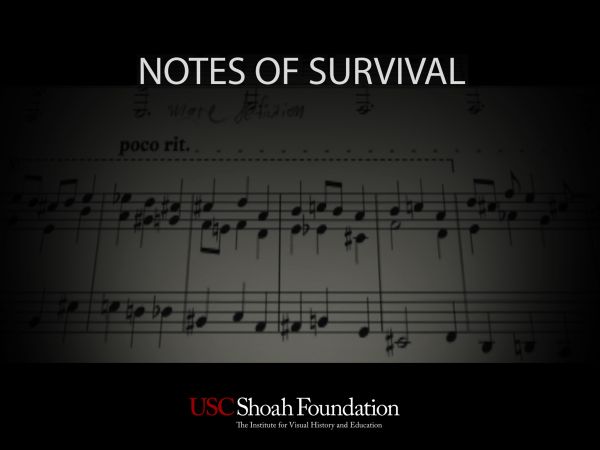Finding Comfort in Music
Music is the purest form of communication. It transcends language and ignores the passage of time. It can be euphoric and elegiac, subtle and sublime. It joyously welcomes life and mournfully greets death. It can provide glimmers of hope and comfort in a world devoid of hope and comfort.
And so it is fitting that as we began preparing this year’s partnership with Comcast that our attention would turn to notes and chords that somehow managed to soothe and sustain so many people who endured the unimaginable horrors of the Holocaust, even as it silenced the voices of so many others – a choir of 6 million that will never be heard.
That’s why we chose music as the theme for this year’s “Days of Remembrance: PastFORWARD,” a seven-week series of films and other features about the Holocaust that Comcast will offer at no cost in conjunction with this year’s U.S. National Days of Remembrance, which starts on April 15.

We are proud to kick off the event with the Academy Award winning film “The Pianist,” which tells the true story of a Polish musician struggling to survive as Nazis overtake Warsaw. The film’s star, Adrien Brody, will provide a special introduction to the broadcast.
We will also offer some new documentaries, including “Music Saved My Life,” and “Melodies of Auschwitz.” And for the first time, you’ll be able to see “Auschwitz, a documentary produced by USC Shoah Foundation founder Steven Spielberg that premiered at the official 70th anniversary commemoration of the camp’s liberation earlier this year.
USC Shoah Foundation is the custodian of 52,000 audiovisual testimonies of survivors and witnesses to the Holocaust, and many of these survivors mentioned the importance of music in their lives. In fact, more than 2,000 of them mention musical recitals and another 500 discuss concentration camp orchestras.
It’s a theme that resonates in many of the 53,000 testimonies collected by the USC Shoah Foundation – The Institute for Visual History and Education, with more than 2,000 of them mentioning musical recitals and another 500 discuss concentration camp orchestras. We are including several of these testimonies, each on touch on a different aspect of music.
Until now, some of this content could only be seen in selected universities and museums. But because of our partnership with Comcast, you can watch them at your convenience across multiple platforms, including Xfinity On Demand, through the Xfinity TV Go app and online to any Internet user nationwide.
Although the Holocaust is a difficult subject, we selected this year’s programing to inspire and inform. I also hope that it helps lift your spirit in a way that only music can.